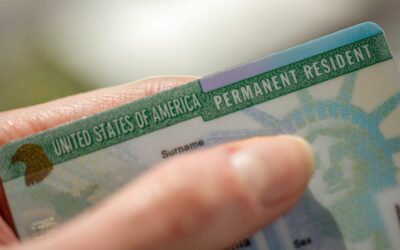A federal court has issued a temporary restraining order (TRO) against a recent Department of Homeland Security (DHS) rule that allowed “parole in place” (PIP) for certain undocumented immigrants. This decision, part of a federal case brought by 16 states, temporarily halts the granting of the PIP, which was designed to ease the process of gaining legal residency for some undocumented individuals already in the U.S.
The court’s order freezes the issuance of the PIP under this program for 14 days, a period that could be extended if necessary. This temporary relief aims to maintain the status quo while the court further examines the legal challenges presented by the states, which argue that the DHS rule could impose costs on them due to the increased presence of undocumented immigrants.
Potential Scenario: What Could Happen Next
If the TRO is extended and the court ultimately rules against the DHS program, the ability of certain undocumented immigrants to gain “parole in place” and potentially achieve legal residency could be severely restricted. This would mean that individuals who might have benefited from this rule, such as those seeking relief to stay with their families while applying for legal status, would instead face the risk of deportation or might be forced to leave the country to apply for admission from abroad. This scenario could create uncertainty and anxiety among immigrant communities and place additional burdens on families, employers, and immigration legal services.
Possible Outcomes
1. Extension of TRO: The court could extend the TRO, giving more time for detailed legal analysis. This would keep the rule on hold longer, preserving the current status quo and preventing new parole applications from being processed under the rule.
2. Preliminary Injunction: If the court finds the states’ arguments compelling during the expedited proceedings, it might issue a preliminary injunction, which would block the rule until a final decision is made in the case. Depending on the length of the litigation, this could result in the rule being suspended for months or even years.
3. Upholding the Rule: Alternatively, the court could find that DHS acted within its legal authority and lifted the TRO, allowing the parole process to proceed. This would enable eligible undocumented immigrants to apply for parole in place, potentially leading to legal residency and work authorization, thereby reducing the fear of deportation and promoting family unity.
4. Appeals: Regardless of the outcome, the losing party will likely appeal the decision, potentially taking the case to higher courts, including the U.S. Supreme Court. This could prolong the legal battle and maintain uncertainty around the status of the DHS rule and affected immigrants.
These legal proceedings highlight the ongoing tension between federal immigration policies and state concerns about their implications for local resources and communities.
Here’s what this means for applicants and their families:
- USCIS will continue accepting applications for the “Keeping Families Together” program.
- However, USCIS cannot process or decide on these applications during the 14-day period.
- There are no restrictions on applying to the program. If you qualify, you can still submit your application.
- If the stay is lifted after 14 days and USCIS resumes processing, those who applied during the stay won’t face penalties or be excluded from consideration.





